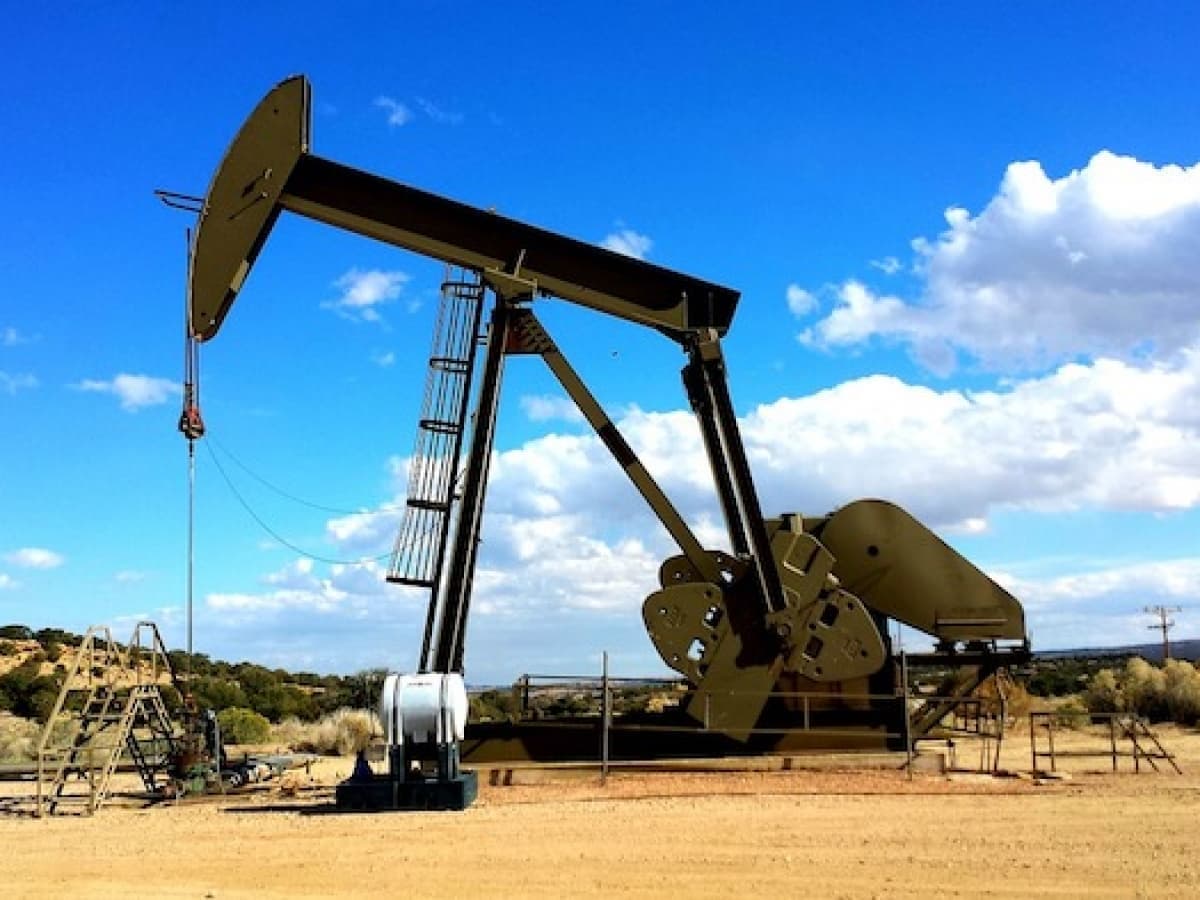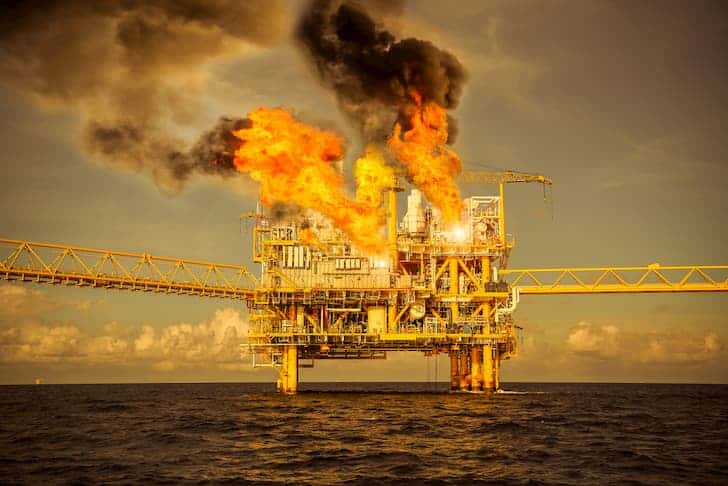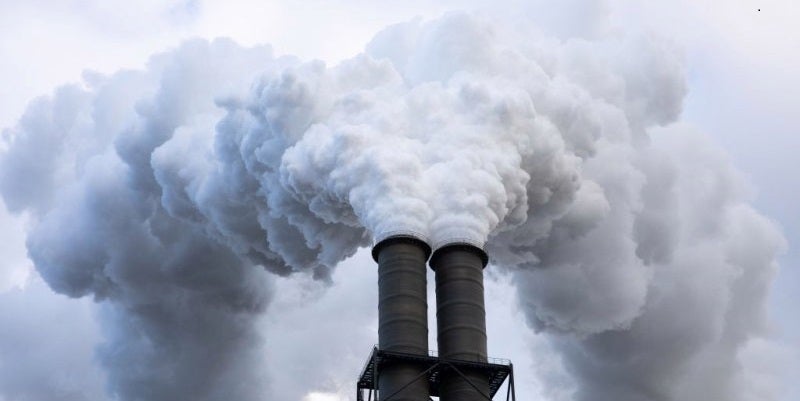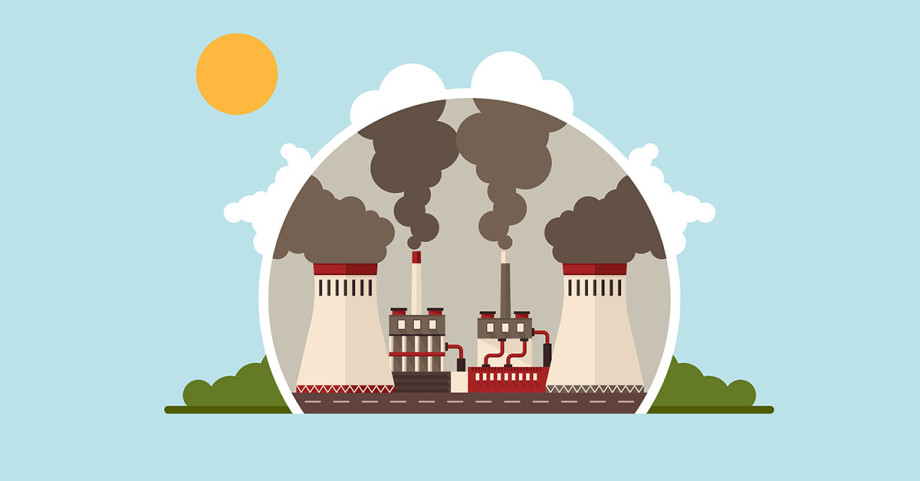Fossil fuels are sediments of organic materials such as dead animals and plants that became deposited under several thousand feet of scrap. These materials have decomposed over time and got transformed into coal, natural gas, and petroleum, based on the extreme pressure and heat inside the crust of the earth. They are also introduced as non-renewable resources of power as it takes a very long time for them to recharge.
What are Fossil Fuels?
The greatest usage level in today’s world is a fossil fuel. They are human’s best friends. Fossil fuel is a term utilized to explain a collection of power sources created by natural procedures such as the anaerobic decomposition during the Carboniferous age millions of years ago. During this age, the world was covered with swamps teeming with organisms and plants. When these organisms and plants died, they sunk to the bottom section of these oceans and swamps.

For millions of years, the dead animals and plants began decomposing process under heavy layers of sand, clay, and other minerals. Fossil fuels include natural gas, petroleum, and coal. The world is based on fossil fuels to solve its daily energy requirements. Although using renewable power sources has increased extremely in the last decade, it will still take some more years to decrease our affiliation with fossil fuels greatly.
The utilization of these fossil fuels is going at a great rate which means while we have used up all of these sources, we require to rely on other sources of energy such as wind, solar, and hydropower to meet our daily requirements. This sounds quite terrible, but yes, this is the reality. Although fossil fuels have their benefits, the damage that they cause to the world can influence the entire ecosystem. This world has no option but to use the existing fossil products until researchers come out with a method that can generate energy at the same rate without affecting the world.
Various forms of fossil fuel form depending on a blend of features, including temperature, organic matter, pressure, and time conditions in the case of decomposition. Three main types of fossil fuels exist today; natural gas, oil (petroleum), and coal. Most of the coal we use in the modern-day was created roughly 300 million years ago. During those years, a huge percentage of the world contained steamy swamps. As plants and trees died, their bodies were deposited at the bottom section of the swamps, resulting in great layers of plant substances. The layers of plants eventually created a soggy, thick substance introduced as peat.

Oil was created from the deposits of dead animals and plants that were decomposed at the bottom section of the ocean. Over several years, the dead animals and plants got buried deeper and deeper by collected sediment causing pressure and heat to increase. The application of pressure and heat with the absence of oxygen (anaerobic decomposition) led to the fractionation of these dead animal and plant matter, leading to oil creation. Natural gas was created in the same method as the oil; just the intensity of pressure and heat considerably increased, causing oil to disintegrate further into gaseous type.
Though most governments greatly embrace renewable resources of power like wind, solar, and geothermal, fossil fuels are still the earth’s predominant power source according to their great energy density. Fossil fuels have a high range of usages, including transport fuels, production of electricity, making products like cosmetics, plastics, and even special medicines. If you want to explore more about the advantages of fossil fuels, visit here.
Advantages of Fossil Fuels
In recent years, it’s quite difficult to side with fossil products as they are talked against now and then by researchers, environmental activists, including usual citizens. Only profiting companies explain well fossil fuels. In truth, fossil products have several upsides that extremely come up in debates. That said, here are the advantages of fossil fuels. The most important advantages of them are as follows:
Cheap Source of Energy
Fundamentally, fossil fuels are some of the cheapest resources of energy on the planet. While the procedure of refinement and extraction is comparatively expensive, the return on investment is pretty considerable. Now, modern technologies are accessible that can extract fossil products with a great degree of efficiency, substantially decreasing the overall price. In fact, in recent years, the extraction of fossil fuels is cheaper than setting solar or wind technologies.
Safe to Transport
Since fossil fuels are stable and safe, they can be moved efficiently and easily over long distances. They can be pumped through large pipes or moved on large trucks below and above the ground. We all understand that these transportation ways are not expensive. However, the same cannot be said about the nerve-racking installation of nuclear energy. Each section of its development is risky, making it the most unstable type of energy to transport or handle.
Massive Economic Benefits

It’s a no-brainer that fossil products maybe contribute to a region’s prosperity. If you take a look at the economies of gas and oil-generating countries, you will see a usual trend; economic prosperity. Government subsidies to oil firms level in billions of dollars and the contribution to the development of a state are more than convincing. Suppose you begin considering how many countries across the earth highly rely on fossil fuels, the number of industries energized by them, and the number of technologies that would not be feasible right now without them. In that case, you start to understand just how fossil fuels have improved our day-to-day life.
Completely Stable
Fossil fuels include hydrogen and carbon molecules, making them greatly stable. The constant situation of their molecular structure also makes them simple to store. They don’t create other compounds when saved in cans for a longer time. This is also the reason why moving them is a lot safer and easier than other forms of fuel.
High Calorific Value
Calorific value is the value of energy included in any fuel. Calorific value is evaluated by measuring the value of heat generated by the whole combustion of a given quantity of it. Calorific value is commonly presented in joules per kilogram. All energy generated on the earth has a specific calorific value. The greater the value, the more effective the material is. Fossil fuels have the greatest calorific value of any fuel. This illustrates why they are still prevailing to renewable types and other alternative energy resources.
Abundant
The reality that fossil fuels can satisfy the requirements of the earth’s population means they are plenteous in supply. Fossil fuels are discovered in almost every region in the world. This aspect presents governments with a piece of mind and understanding that they can meet their needs soon. Extraction and refinery methods have also scaled up with technology traveling at breakneck speeds, making the availability of fossil products even higher.
Useful by Product
The byproducts of fossil fuels do not typically stir enthusiasm. What most people do not understand is that plastics are secondary byproducts of fossil fuels. They might not be appropriate for the environment, but they are cheap and useful. Plastics are also employed in computers and medical equipment.
Reliable
Fossil products have been relied upon because of the industrial revolution. Other renewable power resources such as wind and solar rely on the current climatic situation to generate electricity. For example, the generation of electricity stops if the sun is not shining. Also, wind speed influences the generation of electricity. Fossil fuels ensure a reliable supply of electricity.
Creates Jobs
There is no doubt that fossil fuels have done several jobs in the fields of administration, finance, and construction. Based on a report by the U.S. Department of Energy, the common energy sector employs about 6.5 million Americans nowadays. This presents that the fossil fuel energy sector is a massive source of employment.
Easy Set-Up
When we want to explore the advantages of fossil fuels, we should focus on their installation. Because they are highly available, the manufacturing of fossil fuel power plant can take anywhere in the world as long as they get huge quantities of fossil fuels to supply them. They are simpler to process and can generate a large amount of power at a single location.
Uses of Fossil Fuels
Types of fossil fuels are as the following:
- Coal
- Petroleum
- Natural gas
Coal
- It is a firm, black-colored material constructed from hydrogen, carbon, oxygen, nitrogen, and sulfur.
- The major forms of coal are bituminous, anthracite, and lignite.
- Bituminous is the moderate shape of coal.
- Anthracite has a greater carbon concentration and is the hardest form of coal.
- Lignite has a great concentration of hydrogen and oxygen but a low concentration of carbon.
- Coal is analyzed industrially to achieve derivatives like coal tar, coke, and coal gas.

Formation of Coal
The formation process of coal is introduced as coalification. The dense forest available in the low-lying wetland got buried in the world millions of years ago. Soil kept decomposing over them, and they got compressed. As they went deeper and deeper, they faced high pressure and temperature. As a result, the deposits slowly got transformed into coal.
Uses of Coal
- Coal was used to generate steam in railway engines primarily.
- It is employed to cook food.
- It is utilized to produce electricity in thermal plants.
- It is used as fuel in industries.
Petroleum
- It is an oily, clear liquid, commonly black or green.
- It has a too strange smell and is a mixture of petroleum gas, paraffin wax, diesel, lubricating oil, petrol, etc.
- It is also introduced as “Black Gold” since its broad range of applications in various industries.
Formation of Petroleum
The sea plants and animals died, and their bodies settled at the bottom section of the water. They got pressured by several layers of clay and sand. Their encounter with great pressure and temperature transforms them into petroleum. The petroleum is processed from the crude oil by a series of functions in a refinery. This is introduced as petroleum refining.
Uses of Petroleum
- It is employed to energize internal combustion engines in the form of petrol.
- It is used in road pavements, roofing, and as a water repellent.
- It is utilized in manufacturing polyethylene, plastics, detergents, fibers, etc.
Natural Gas
- It is a non-toxic and clean type of fossil fuel.
- It is odorless, colorless, and can be easily moved across the pipelines.
- It is used as the compressed type of natural gas (CNG) under high pressure in many applications.
- It is the less expensive and less polluting fossil fuel.
- Methane is the most considerable natural gas.
Formation of Natural Gas
The zooplankton and phytoplankton sink to the bottom section of the sea and mix with organic substances to create organic-rich mud. The mud is buried under more deposits and lithifies to make an organic shale. This prevents its contact with oxygen. This is operated to protect the organic substances from being decomposed by bacteria. The high temperature and pressure change the shale into a waxy substance introduced as the kerogen. Kerogen is modified into natural gas at temperatures between 90-160°C.
Uses of Natural Gas
- Compressed Natural Gas (CNG) is employed for creating power.
- It is employed as fuel in automobiles.
- It can be utilized at home for cooking.
- It is used as a starting substance in fertilizers and chemicals.
Key Takeaways
Fossil fuels have been energizing the earth for decades, making them reliable and cheap because the infrastructure is already in place for their continued utilization. While fossil fuels are simple to fall back on, they are the major contributor to global climate variation and a great reason for pollution. Fossil fuels are introduced as non-renewable sources, meaning the fossils we dig up to use will finally run out or continue to be harder to discover and extract.
Buy Equipment or Ask for a Service
By using Linquip RFQ Service, you can expect to receive quotations from various suppliers across multiple industries and regions.
Click Here to Request a Quotation From Suppliers and Service Providers
Read More In Linquip
- What are the Disadvantages of Fossil Fuels?
- Fuel Cells Advantages and Disadvantages: All You Should Know About
- Difference Between Renewable Energy and Fossil Fuels
- Is Natural Gas a Fossil Fuel?
- What are the Disadvantages of Fossil Fuels?
- Renewable Energy vs Fossil Fuels | How do They Compare?
- Is Oil Renewable Or Nonrenewable: A Complete Research
- Is Renewable Energy Cheaper? A Thorough Response
- A Cheat Sheet For Coal Energy Pros And Cons
- Advantages of Renewable Energy: A Brief on Some of the Most Undeniable Ones



